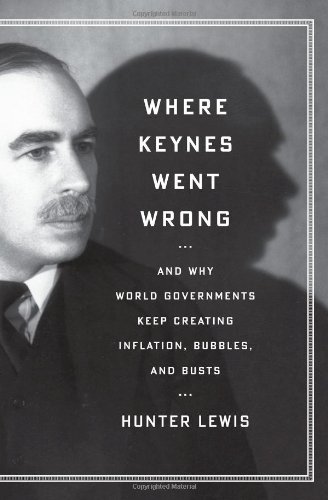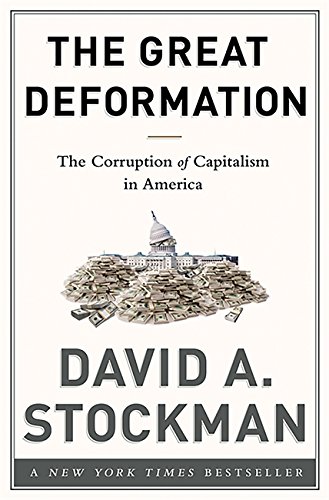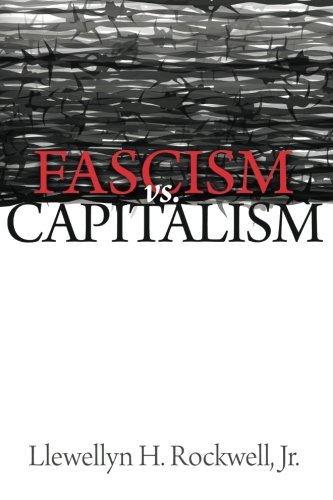If the price oil fell to $3 a barrel, and it stayed there for 10 years, that would be a good thing.
What if this led to massive unemployment in the oil industry? That would be a good thing.
But isn’t the primary task of a free market economy to balance supply and demand? Yes, it is. Then isn’t it important that employment stay high, so that output can remain high? That is Keynesianism’s view. It is also mercantilism’s view. But it is the wrong question. A firm does not employ lots of people in order that output can remain high. It employs lots of people so that output meets demand at a price that is profitable for the company. If a firm continues to produce large quantities of goods that cannot be sold at a profit, it is making a horrendous mistake. It is wasting resources. The important thing at this point is for the firm to shut down operations entirely. Close up shop. Go fishing. Stop the waste.
 Where Keynes Went Wron...
Best Price: $2.13
Buy New $8.00
(as of 05:30 UTC - Details)
Where Keynes Went Wron...
Best Price: $2.13
Buy New $8.00
(as of 05:30 UTC - Details)
The free market economy, according to Adam Smith, and also according to Ludwig von Mises, is supposed to produce goods in order to meet demand of customers. The free market economy’s task is not to see to it that lots of people are employed. It is not to see to it that investors receive a normal rate of return. The free market economy’s task is to see to it that, when customers go to the store, they can find whatever it is they are looking for at a price they are willing and able to pay. That is called a market-clearing price. It is the central task of entrepreneurs to create output that will be sold profitably at a market-clearing price.
What is a market-clearing price? It is the price at which nobody is waiting to sell the item, and nobody is waiting to buy the item, unless the price changes. If an entrepreneur can forecast in advance what this price will be, and then organize productive capacity in order to meet this demand at a price that produces a profit, then he is well worth his money, and he will make a lot of it.
 The Great Deformation:...
Best Price: $2.00
Buy New $9.95
(as of 09:55 UTC - Details)
The Great Deformation:...
Best Price: $2.00
Buy New $9.95
(as of 09:55 UTC - Details)
The entrepreneur’s task is not to figure out how many people ought to be employed, except for one purpose: producing something that the market will buy. It is not the entrepreneur’s task to serve the workers. It is the entrepreneur’s task to serve the buyers. Any other view of the market is going to lead to some variation of mercantilism. Adam Smith refuted that position in 1776, but the world is filled with mercantilists who have not read Smith, or who do not understand Smith, or who find that it is not in their personal self-interest to admit that they believe Smith and they recommend what he says, because they want to clean up personally. That, as a matter of fact, is exactly what Adam Smith did. One year after he wrote The Wealth of Nations (1776), he went on the government’s payroll as the head of the customs office of the Scottish branch of the British Empire. He made his
 All the Presidentsu201...
Best Price: $4.39
Buy New $44.43
(as of 08:35 UTC - Details)
money by collecting tariff payments that he believed were bad for the economy.
All the Presidentsu201...
Best Price: $4.39
Buy New $44.43
(as of 08:35 UTC - Details)
money by collecting tariff payments that he believed were bad for the economy.
CHEAPER OIL
There is all kind of handwringing, wailing, and gnashing of teeth on the sidelines, because the price of oil is down, and oil producing companies will lose lots of money.
Some people really believe that the free market economy’s number-one task is to provide high rates of return for investors. The secondary importance of the free market economy is supposedly to produce above-market wages for those people who are employed by favored industries. Only as a last resort do these people focus on the task of the entrepreneur, namely, to balance supply and demand at a price that keeps the entrepreneur in business.
 Fascism versus Capitalism
Best Price: $3.39
Buy New $7.45
(as of 05:45 UTC - Details)
Fascism versus Capitalism
Best Price: $3.39
Buy New $7.45
(as of 05:45 UTC - Details)
The fall of the price of oil is bad for people who invested in junk bonds issued by lots of high-flying shale oil firms, whose stocks have fallen about 60%. Their bonds are doing almost as bad. What is good for the American customer, and every other customer, is low-cost oil that is sold at low, low prices. This enables customers to achieve their goals more effectively. The fact that it is going to bankrupt a lot of high-flying companies that borrowed way too much money is neither here nor there for consumers. “Not our problem.”
If oil producers want to sell oil at a particular price, and this price is profitable for the producers in the short run as well as the long run (think Saudi Arabia), it is irrelevant that a lot of American oil companies that should never have started their projects now find that they are heading toward bankruptcy. They will have to sell their assets to entrepreneurs who were smart enough to stay out of the shale oil market until this week, or next week, or whenever the new owners take over. The oil will still be in the ground. But the investors who paid for the equipment to get it out of the ground made a big mistake. They did not see what was coming. They have lost their
 Against the State: An ...
Best Price: $5.02
Buy New $5.52
(as of 11:35 UTC - Details)
investment. That is their problem, but it is not the problem of the customers. It is not the problem, or should not be the problem, of the Federal Reserve System, the Treasury Department, or anybody else who is trying to extract blood money out of what are now entrepreneurial turnips.
Against the State: An ...
Best Price: $5.02
Buy New $5.52
(as of 11:35 UTC - Details)
investment. That is their problem, but it is not the problem of the customers. It is not the problem, or should not be the problem, of the Federal Reserve System, the Treasury Department, or anybody else who is trying to extract blood money out of what are now entrepreneurial turnips.
Unemployment will undoubtedly go up in North Dakota. That’s bad for North Dakota, but the rest of the country really doesn’t care, nor should it. It may lead to unemployment in Texas. The same principle applies. Somebody made a mistake, and the fall in the price of oil has led to massive losses on the part of those people who made the mistake. This is what the free market pricing system is all about. This is what the profit-and-loss system is all about. It is all about conveying information to participants. The information that it is conveying to senior managers of companies that borrowed too much money is this: “You are going to go bankrupt. You have been weighed in the balance, and found wanting. You are going to be out of this line of work. Somebody else is going to replace you.”
 Wall Street, Banks, an...
Best Price: $5.39
Buy New $4.00
(as of 05:45 UTC - Details)
Wall Street, Banks, an...
Best Price: $5.39
Buy New $4.00
(as of 05:45 UTC - Details)
This is exactly the information that needs to be conveyed to these people. It is the information that needs to be conveyed to the people who will be able to come in and buy up these bad investments at a nice low price. Then they will be able to participate in the profits when the price of oil goes back up.
The price of oil will go back up. In February 2009, West Texas intermediate crude oil sold for $37.51 a barrel. By the end of December, it sold for just under $80 a barrel. But those people who invested on the assumption that it would not go to $37.51 a barrel lost their shirts. They paid too much for their investments. They should have waited to buy. That is what entrepreneurship is all about: losses as well as profits.
It is good for the economy to have lots of oil at a cheap price. It is indeed bad for shale oil entrepreneurs who were not very good at forecasting this market, but that is not the problem of customers. That is not the problem of the federal government. That should not be the problem of the Federal Reserve System.




